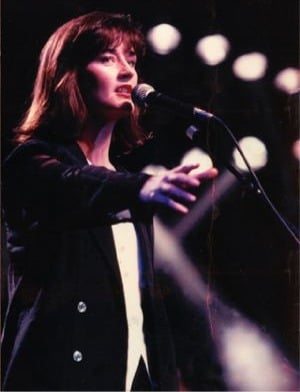/PAlogo_v2.gif) |
|
Post Reply 
|
Page <123 |
| Author | |
Joren 
Special Collaborator 

Honorary Collaborator Joined: February 07 2004 Location: Netherlands Status: Offline Points: 6667 |
 Posted: March 07 2004 at 10:56 Posted: March 07 2004 at 10:56 |
|
By the way: Do you think I mentioned any bands that don't deserve it? |
|
 |
|
Joren 
Special Collaborator 

Honorary Collaborator Joined: February 07 2004 Location: Netherlands Status: Offline Points: 6667 |
 Posted: March 07 2004 at 10:53 Posted: March 07 2004 at 10:53 |
|
To Lucas: - First of all: THANK YOU! - I think there still are some discutable points (10cc and Roxy Music are not considered prog by everybody) - You named some sub-genres that I won't use. I had already decided that I would use the sub-genres as mentioned on the progarchives homepage. - There's already a whole chapter in my paper about Zappa and Beefheart (I think they were the 'pioneers' - Also THANKS for the bandnames I forgot. I heard UK deservers a special place! And Bruford's a legend... - My problem was that I didn't grow up in the seventies and I'm not familiar with all progressive rock sub-genres. You really helped me out here! THANKS A LOT !! |
|
 |
|
Alexander 
Forum Senior Member 

Joined: February 02 2004 Location: United States Status: Offline Points: 237 |
 Posted: March 06 2004 at 15:18 Posted: March 06 2004 at 15:18 |
|
Yeah, pretty much. |
|
|
On A Dilemmia Between What I Need & What I Just Want

|
|
 |
|
Vibrationbaby 
Forum Senior Member 
Joined: February 13 2004 Status: Offline Points: 6898 |
 Posted: March 06 2004 at 14:09 Posted: March 06 2004 at 14:09 |
|
Whoa Lucas! Ithink you just wrote the guy's school assignment for him!
|
|
 |
|
lucas 
Special Collaborator 

Honorary Collaborator Joined: February 06 2004 Location: France Status: Offline Points: 8138 |
 Posted: March 06 2004 at 12:34 Posted: March 06 2004 at 12:34 |
|
You can add : Zappa (sixties, seventies, eighties, (nineties ?)) Bruford (seventies) Tangerine Dream (seventies, eighties, nineties) Greenslade (seventies) Utopia (seventies) Happy The Man (seventies) Kansas (seventies, eighties...) Supertramp (seventies) Roxy music (seventies, eighties) Egg (seventies) Hatfiels and the North (seventies) National Health (seventies) Synergy (seventies, eighties) UK (seventies) Dixie Dregs (seventies, eighties, nineties) Henry Cow (seventies) Le Orme (sixties, seventies) Locanda delle fate (seventies) Gryphon (seventies) |
|
|
"Magma was the very first gothic rock band" (Didier Lockwood)
|
|
 |
|
lucas 
Special Collaborator 

Honorary Collaborator Joined: February 06 2004 Location: France Status: Offline Points: 8138 |
 Posted: March 06 2004 at 11:21 Posted: March 06 2004 at 11:21 |
|
A difficult task... Late sixties and beginnig of the seventies : ; ; ; ; ; I would say it all began with psychedelic music, i. e. essentially Jimi Hendrix and earlier Pink Floyd (all their stuff with Syd Barrett). [Some people say that the Beatles also had a contribution to the prog movement]. Then came bands such as King Crimson and Yes at the end of the sixties. King Crimson, along with Van der Graaf Generator helped define a sub-genre of the progressive music called hard-prog ('hard' refering to the tormented atmosphere of their records, however 'In the court of the crimson King' is symphonical prog The seventies : ; ; ; ; ; After Syd Barrett left Pink Floyd The eighties : The progressive rock was supplanted by the punk movement The nineties : metal-prog developed with Dream Theater's 'Images and words'. However, in the eighties some groups were already playing a heavy-metal-based progressive music : Queensryche, Fates Warning, Watchtower. Thanks to Mike Varney in the USA I hope these informations will help you in your investigation. |
|
|
"Magma was the very first gothic rock band" (Didier Lockwood)
|
|
 |
|
Joren 
Special Collaborator 

Honorary Collaborator Joined: February 07 2004 Location: Netherlands Status: Offline Points: 6667 |
 Posted: March 06 2004 at 08:48 Posted: March 06 2004 at 08:48 |
|
Thanks Aerandir! I will not forget Dream Theater (how could I? I tried to make a list for the sixties and seventies already. Please correct/criticise it! (I need it) MOST IMPORTANT PROGBANDS OF THE SIXTIES:
Caravan Colosseum Genesis Jethro Tull King Crimson Moody Blues Nice, The Pink Floyd Renaissance? Soft Machine Van Der Graaaf Generator Vanilla Fudge Yes
MOST IMPORTANT PROGBANDS OF THE SEVENTIES:
New Amon Düül II? Ange? Banco Del Mutuo Soccorso Barclay James Harvest Brand X Camel Can Colosseum II? Eloy Emerson, Lake And Palmer Focus Gentle Giant Gong? Hawkwind Magma Mahavishnu Orchestra Manfred Mann’s Earth Band Oldfield, Mike Premiata Forneria Marconi (PFM)? Rush Saga? Strawbs? Old (already wel-known in the sxties) Caravan Jethro Tull Genesis King Crimson Moody Blues Pink Floyd Renaissance? Soft Machine? Van Der Graaaf Generator Yes
Edited by Joren |
|
 |
|
Aerandir 
Forum Groupie 
Joined: February 21 2004 Location: Greece Status: Offline Points: 62 |
 Posted: March 06 2004 at 08:34 Posted: March 06 2004 at 08:34 |
|
Hello and a very interesting paper you chose! i think this linik will help you http://www.encyclopedia.com/searchpool.asp?target=progressiv e+rock you can also search for other prog-genres! everything is included! Concerning my opinion of which bands were more influential i would say 4 among dozens that exist! Pink Floyd , Jethro Tull , Genesis and (oh yes, i'm gonna say it..) Dream Theater
|
|
|
That which doesn't kill you, postpones the inevitable
|
|
 |
|
Joren 
Special Collaborator 

Honorary Collaborator Joined: February 07 2004 Location: Netherlands Status: Offline Points: 6667 |
 Posted: March 06 2004 at 07:22 Posted: March 06 2004 at 07:22 |
|
HI! I'm writing a large paper for school. Of course it's about (the development of) progressive rock, and I thought maybe you could help me a bit I wonder what bands you consider as being the most influential, the most important, or just the BEST bands of each decade. So what do you think are the best progbands from the sixties, seventies, eighties and nineties? Thanks in advance! Joren |
|
 |
|
Post Reply 
|
Page <123 |
| Forum Jump | Forum Permissions  You cannot post new topics in this forum You cannot reply to topics in this forum You cannot delete your posts in this forum You cannot edit your posts in this forum You cannot create polls in this forum You cannot vote in polls in this forum |